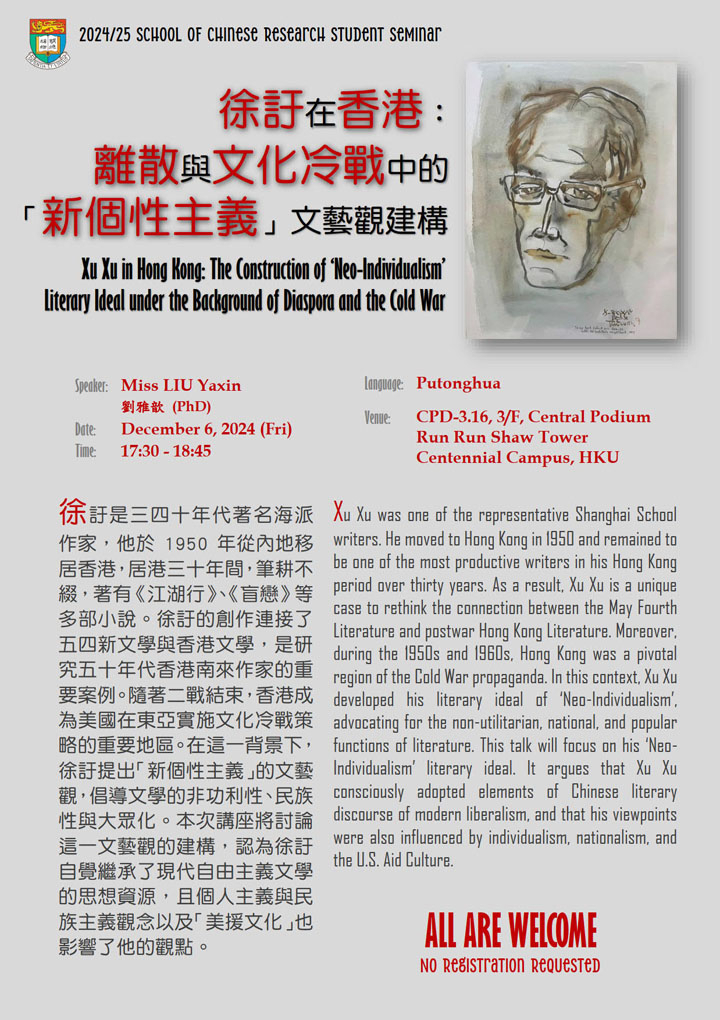徐訏在香港:離散與文化冷戰中的「新個性主義」文藝觀建構 Xu Xu in Hong Kong: The Construction of ‘Neo-Individualism’ Literary Ideal under the Background of Diaspora and the Cold War

2024/25 School of Chinese Research Student Seminar
徐訏在香港:離散與文化冷戰中的「新個性主義」文藝觀建構
Xu Xu in Hong Kong: The Construction of ‘Neo-Individualism’ Literary Ideal under the Background of Diaspora and the Cold War
Abstract:
徐訏是三四十年代著名海派作家,他於1950年從內地移居香港,居港三十年間,筆耕不綴,著有《江湖行》、《盲戀》等多部小說。徐訏的創作連接了五四新文學與香港文學,是研究五十年代香港南來作家的重要案例。隨著二戰結束,香港成為美國在東亞實施文化冷戰策略的重要地區。在這一背景下,徐訏提出「新個性主義」的文藝觀,倡導文學的非功利性、民族性與大眾化。本次講座將討論這一文藝觀的建構,認為徐訏自覺繼承了現代自由主義文學的思想資源,且個人主義與民族主義觀念以及「美援文化」也影響了他的觀點。
Xu Xu was one of the representative Shanghai School writers. He moved to Hong Kong in 1950 and remained to be one of the most productive writers in his Hong Kong period over thirty years. As a result, Xu Xu is a unique case to rethink the connection between the May Fourth Literature and postwar Hong Kong Literature. Moreover, during the 1950s and 1960s, Hong Kong was a pivotal region of the Cold War propaganda. In this context, Xu Xu developed his literary ideal of ‘Neo-Individualism’, advocating for the non-utilitarian, national, and popular functions of literature. This talk will focus on his ‘Neo-Individualism’ literary ideal. It argues that Xu Xu consciously adopted elements of Chinese literary discourse of modern liberalism, and that his viewpoints were also influenced by individualism, nationalism, and the U.S. Aid Culture.








